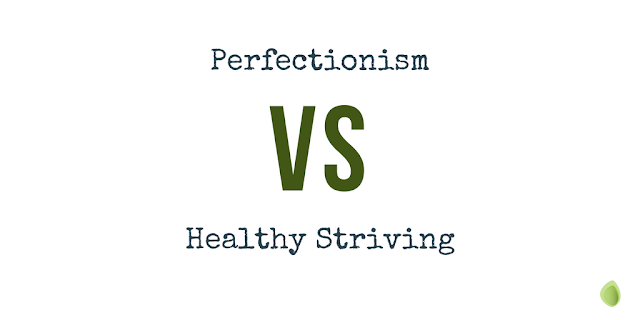by: Dr. Dino
Zuccarini and Tatijana Busic
Depression
can be isolating, and block us from soliciting emotional or physical caregiving
from others, which inevitably worsens our depression symptoms. Other people’s
responsiveness toward our feelings and needs can make us feel more connected
and better about ourselves.
Identify a friend,
family member, or partner who you sense will be mostly available and responsive
to you at this time. Good indicators would be someone you think is sensitive, a
good listener, and understanding of others’ feelings and viewpoints. If you are
unsure or cannot identify a responsive other in your life, or if your emotions
and needs for support exceed what others can provide you, you can seek out the support of a registered
clinical psychologist. Professional support can make a critical contribution to
your recovery in these cases.
Sharing and
Expressing Feelings and Needs to an Accessible and Responsive Other
Don’t isolate
yourself! Let those closest to you know that you have been struggling with
depression so that they will understand you more so. Share what you know about
your own mental health. Let them know that connecting to them may help you with
your depression. You may want them to participate in some activities with you,
such as walking, going out for dinner or a movie. Let them know that you may
need their support from time to time.
Sharing feelings
with someone important to you can alleviate depressive symptoms. Prior to
talking to another person, try to put your difficult feelings into words and
share them with this person. The good news is that you don’t have to have
things all figured out before you reach out. You can simply tell this person
that you want him or her to listen or to support you to problem-solve a
difficult situation or experience, or you can simply ask for reassurance or a
hug. Talking things through with others can help you to clarify what you truly
think, feel, and need in a way that can give you a more positive direction. Try
not to expect perfect responses from others. Sometimes people close to us are
trying as hard as they can to support us and have good intentions.
Confirming/Disconfirming
Negative Views with Responsive Others
When talking to
your available trustworthy confidante, bounce off of them some of the negative views
you hold about yourself and others.
Try to figure out
what some of the biases and assumptions are that you are holding of yourself
and others. Share what your most difficult thoughts and feelings are about
yourself or about others in your world. Ask this individual to provide you with
feedback about your views and to support you to identify counter-examples of
your negative views. It can feel vulnerable to open up about some of the
distressing thoughts and feelings that go on inside your mind and body, but
sharing with another person that you trust can help you to break the negative
thought patterns, perceptions, and biases that perpetuate your depressed
feelings.
Asking for
Reassurance and Affirmation from Responsive Others
When we are overly
self-critical of ourselves or negative about others, we may have difficulties
seeing our positive attributes. Relationships are an important source of
getting reassurance and affirmation for ourselves when we are having negative
thoughts and feelings about ourselves, other people or the world around us.
If you are having
doubts about yourself, try asking for reassurance about your lovability, your
adequacy, or your competence. Be open to receiving others’ reassurances or
positive affirmations of you in a way that helps to calm your sense of
hopelessness about prospects for yourself in the present and future. Give
yourself and others the benefit of the doubt and allow yourself to feel
reassured and affirmed.
Be prepared to
observe how others perceive ways in which you might be contributing to your own
difficulties by how you are thinking, reacting and relating to others.
Interpersonal feedback from responsive others who we trust can provide us
important information to consider in our recovery process. Try to remember that
being perfect is not a requirement for being worthy.
Repairing
Disconnection and Creating Positive and Rewarding Relationship Moments
Sometimes, while
depressed, our relationships begin to break down, which leaves us at greater
risk of being isolated in our emotional distress. We all make missteps at one
point or another in our relationships. Perhaps either you or someone else has
said something that was offensive, frustrating, or hurtful. Since relationships provide all of us with
valuable emotional support, it is important to make some effort to repair our
relationships with others.
Try to find a
constructive way to repair or reconnect with others. In these conversations, it
will be important to discuss you and the other person, who may have offended,
frustrated, or hurt each other. Be prepared to listen and respond in a
constructive manner, including empathizing with the other person’s hurt,
sadness, or anger.
Take
responsibility, express heartfelt regrets, and make amends if possible.
Repairing difficult relationship moments or disconnected relationships can
restore a positive sense of yourself and other people in your environment. This
process of reparation and healing can create a sense of connection at a time
when you need it the most.
Also, try to create
opportunities for lightness and fun in your relationships. Meaningful connection
with others does not always have to be serious and intense. Although deep,
intimate conversations in which you can feel understood and supported are key,
it is also important to find some balance by seeking out some frivolous and
even spontaneous moments purely motivated by pleasure and some needed
distraction in the company of others.
Seeking out Professional Support: Consulting with your
Physician and a Registered Clinical Psychologist or Psychotherapist
Consulting with a
physician may also be an important first step to assess your current mental
health status. Depression can be associated with many biological and medical
causes that require medical interventions.
Seeking the
professional support of a registered clinical psychologist or psychotherapist
may be important to help you address the negative thoughts and feelings you are
having about yourself, or others. Learning how to address perfectionism,
self-criticalness, and process your emotions and clarify wants, needs, and goals
can be challenging. Contact a psychologist or psychotherapist if you find that
dealing with your thoughts and feelings on your own has become
unmanageable.
Contacting a
psychologist or psychotherapist may also be an important first step if you continue
to experience debilitating depressive symptoms that interfere with your
functioning at work, home, or school. A therapeutic relationship can help you
to make sense of your experience of depression and help you along on your path
to recovery. A confidential, empathic,
and compassionate therapeutic relationship can help you to strengthen yourself
as an individual, to improve the quality of your relationships, and provide you
with further strategies to help you deal with the negative thoughts and feelings
you have been experiencing.
Read more additional posts from the 'Depression' series:







